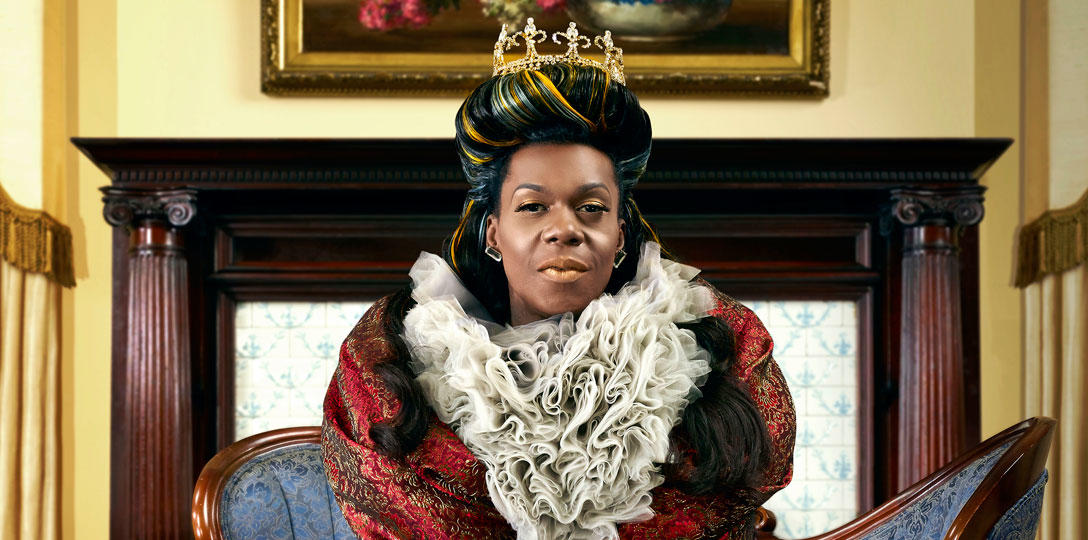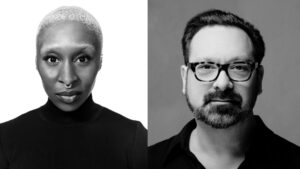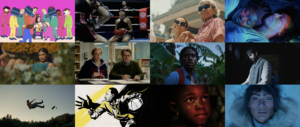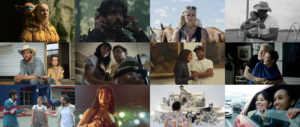Nate von Zumwalt
Big Freedia lets out a teasing chuckle while revisiting how she reminded the world of the real queen of Bounce, a New Orleans-bred musical style know for its frenetic bass beats, call-and-response lyrics, and twerking. “It felt really good once I took my crown back and I’m happy about how things are going in my life and in my career,” she says with a hint of mockery. There’s a sense that the crown is less proverbial than it is real, and the unapologetic confidence that Big Freedia possesses would suggest that she quite literally plucked it from the head of Miley Cyrus when the latter became the unofficial – and according to Freedia, unqualified – ambassador of twerking a few years back. “I still offer Miley to come take a class with me.”
That saga is just one strange thread in the narrative of Big Freedia and the often-unheralded Bounce genre. Another would arrive earlier this year as she now famously hollered, “I came to slay, bitch!” on Beyonce’s “Formation” record and music video. Slowly these moments, along with other prominent displays like her Fuse TV show Big Freedia: Queen of Bounce and the critically acclaimed release of her debut LP Just Be Free, seem to be elevating both an artist and a culture that are more frequently imitated than they are appreciated.
Next month, Big Freedia will take the stage at the Theatre At Ace Hotel in Downtown Los Angeles to close out Sundance NEXT FEST and she promises to bring the spirit of New Orleans in tow. Freedia’s performance will take place Sunday, August 14, following the presentation of Royal, a short film by Flying Lotus, and the Los Angeles premiere of The Greasy Strangler. Click here to learn more and purchase tickets.
Bounce music is still somewhat regionalized and perhaps not as well known outside of its place of provenance, which is of course New Orleans. How do you describe your sound to new listeners?
Big Freedia: It’s fun music. It’s something that everybody can relate to. Everybody wants to let their hair down when they’re partying and having fun, and my music can relate to that. This is something that has a lot of knock to it, a lot of energy, and it’s fun. It’s happy music, and people love to be happy.
There is an empowerment that is suffused in your music – it comes from both your personality and the confidence of your sound…
Oh yeah, most definitely. And I definitely empower women all around the world to be able to be themselves. And not just women, but men [too], to not be afraid to be themselves and to empower on the dance floor through music and love and spirit. I’m helping change the world with music and being myself and being who I am.
There was a moment a few years back when twerking went through this phase of appropriation, led in part by Miley Cyrus’ popularization of the dance style. It seemed to muddle the perception of twerking and its correlation to bounce music.
What I did with that was I started to work a little bit harder and to let it be known who sits on this throne. You know, I had worked years before Miley even came about thinking about twerking. Once Miley came with it people started to interview me – and I must have done over 100 interviews [with people] asking me how I feel about it – and I still offer Miley to come take a class with me. But I just wanted my credit. I wanted my credit for working my ass off for the last 18 years and putting New Orleans Bounce music on the map. It felt really good once I took my crown back and I’m happy about how things are going in my life and in my career.
Because this is a music and film festival, I’m curious about if you have any particular film interests?
I’m definitely stepping into the film world. You know I have my TV show Big Freedia: Queen of Bounce. My show is real, and that’s why I’m stepping into movie roles now. I’m in a new movie coming out next year called Heart, Baby, so I’m definitely stepping more into the film world and I’m very excited about that.
What is it like being in the audience for a Big Freedia performance, and do you find that performing in regions like Los Angeles is different from bounce hotbeds like New Orleans?
It is. For the most part it’s all just about the same, but the energy levels change when I go to different places. When I come to LA the energy is so amazing, and the people and the vibes – it’s a music town and people love to party and have fun. I was just in LA this weekend and I performed at the Union Club and the crowd was phenomenal. Phenomenal. I shook the house down. It’s a really good feeling to come to all these different places around the world and get all of that energy from all those amazing people who come to support me. It’s the energy from the fans that keeps me going.
How do new fans typically respond to your music? Do you have a particular approach to engaging unaccustomed audiences?
I just be me. By the second song they’re in. I just do me. I bring New Orleans with me. When I go somewhere, it’s about to turn into a New Orleans party. I’m about to bring New Orleans where I go and let people know how we get down and how we party. A lot of times I see a lot of mouths dropping and eyes bucking and people tapping their friends [and saying], “Oh my god, did you see that?” Like I said, second or third song in they’re captivated … and by the end of the performance I’m probably getting a standing ovation.




